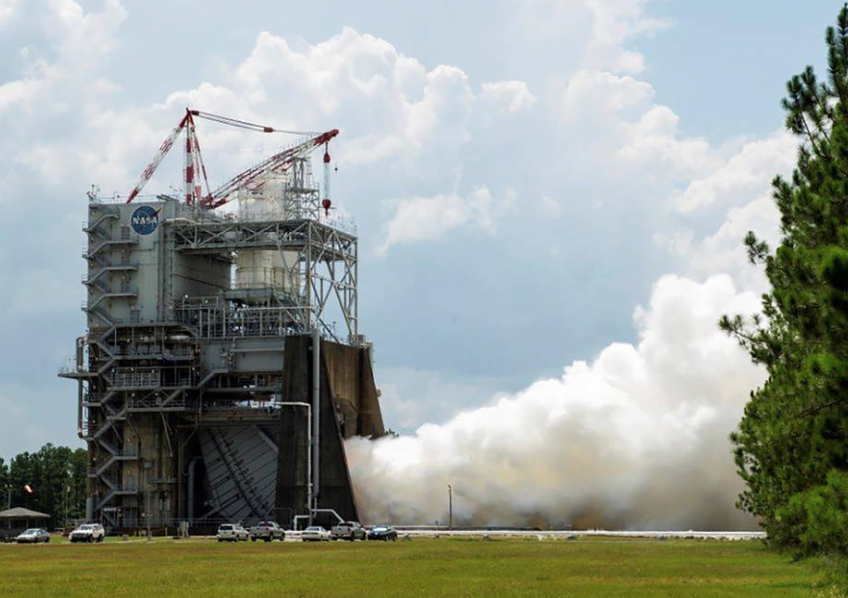
The RS-25, also known as the Space Shuttle Main Engine, is the world’s most reliable rocket booster engine. For three decades, these liquid hydrogen/liquid oxygen engines powered humans and payloads on all 135 Space Shuttle flights, enabling advancements such as the construction of the International Space Station, deployment and servicing of the Hubble Space Telescope, and furthered our scientific knowledge of the Universe.
[SatNews] When fully developed, the heavy-lift version of the spacecraft will be the largest, most powerful rocket ever built...
In auto racing parlance, NASA engineers put the “pedal to the metal” during a July 17 test of its Space Launch System (SLS) RS-25 rocket engine at Stennis Space Center.
During a 535-second test, operators ran the RS-25 through a series of power levels, including a period of firing at 109 percent of the engine’s rated power. Data collected on performance of the engine at the various power levels will aid in adapting the former space shuttle engines to the new SLS vehicle mission requirements, including development of an all-new engine controller and software.

Four RS-25 engines will use the added performance to help power the SLS core stage during launch. The SLS is being developed to carry humans deeper into space than ever before, to such destinations as an asteroid and Mars. When fully developed, the heavy-lift version of the spacecraft will be the largest, most powerful rocket ever built.
Prior to the first launch, Exploration Mission-1, the SLS first stage will be tested on the B-2 Test Stand at Stennis, which will involve simultaneously firing its four RS-25 engines just as they would during an actual launch. Modifications are continuing to prepare the B-2 stand for the test series.
Meanwhile, during the July 17 development engine test on the nearby A-1 Test Stand, operators continued to collect data on engine performance under various conditions. They also collected data on performance of the new controller, which monitors and controls engine performance. Aerojet Rocketdyne of Sacramento, California, is the prime contractor for the RS-25 engine work. Two additional tests of the RS-25 engine are planned before the current test series concludes by early September and a new test series begins on four engines for a future flight.
Editor: Jennifer Harbaugh

